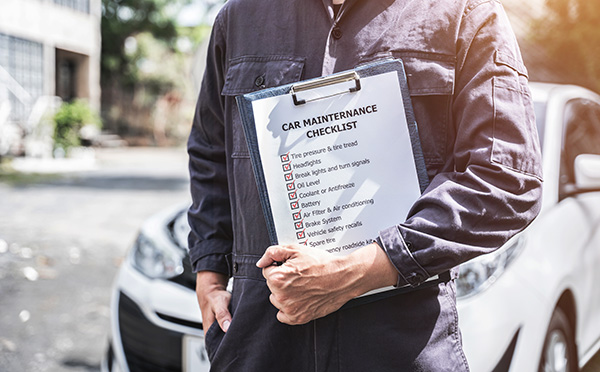
Owning a car is more than just filling the gas tank and taking it for a spin. For your vehicle to run smoothly and efficiently, regular maintenance is essential. Neglecting routine checks could lead to costly repairs, decreased performance, and even safety risks on the road. But what exactly should you be keeping an eye on? Whether you're an experienced car owner or a new driver, understanding the fundamental aspects of car maintenance can keep your vehicle in tip-top shape. Below, we'll explore the ten key car maintenance checks you need to perform to ensure optimal vehicle performance.
1. Regular Oil Changes
Oil is the lifeblood of your engine, and neglecting to change it regularly can lead to severe engine damage. Most manufacturers recommend an oil change every 5,000 to 7,500 miles, depending on the type of oil and your vehicle's needs. Over time, oil loses its effectiveness at lubricating and cleaning the engine. This can cause your engine to overheat or wear out faster. Keeping up with oil changes ensures your engine runs smoothly and lasts longer.
2. Check and Replace Air Filters
A clean air filter ensures your engine gets the oxygen it needs for combustion. When your air filter gets clogged, it restricts airflow, which can reduce engine efficiency and increase fuel consumption. Replacing your air filter every 15,000 to 30,000 miles (depending on your driving conditions) helps maintain engine performance and fuel efficiency.
3. Inspect Tire Condition and Pressure
Tires are your vehicle’s contact point with the road, and keeping them in good shape is crucial for safety and performance. Underinflated tires wear out faster and negatively affect your fuel efficiency, while overinflated tires can lead to a rough ride and uneven wear. Check your tire pressure monthly and ensure it's at the manufacturer’s recommended level. Additionally, inspect your tires for tread wear, cracks, and bulges. Rotate your tires every 6,000 to 8,000 miles to extend their lifespan and promote even wear.
4. Brake System Check
Your brakes are one of the most critical safety systems in your vehicle. Regularly inspect brake pads, rotors, and fluid levels. Worn-out brake pads can lead to reduced braking performance and even damage the rotors, while low brake fluid can compromise your vehicle's stopping power. If you hear squealing or grinding noises when braking, it’s time to get them checked and replaced if necessary.
5. Battery Inspection and Maintenance
A dead battery can leave you stranded, so keeping an eye on your car’s battery health is crucial. Check for corrosion around the battery terminals and ensure the cables are securely connected. Most car batteries last between 3 to 5 years, but factors like extreme temperatures can shorten their lifespan. Consider replacing your battery before it starts causing trouble.
6. Monitor Fluid Levels
Beyond oil and brake fluid, your car relies on various other fluids to run properly, including transmission fluid, coolant, and power steering fluid. Low or dirty fluid can cause overheating, steering problems, or even transmission failure. Make it a habit to check these fluid levels regularly and top them off as needed to prevent major issues down the road.
7. Inspect Belts and Hoses
Your vehicle's belts and hoses play an essential role in its overall operation, from powering the alternator to circulating coolant. Over time, belts can crack or fray, and hoses can become brittle or leak. Checking them for wear and replacing them at the first sign of trouble can prevent costly repairs and breakdowns.
8. Replace Windshield Wipers
Windshield wipers are often overlooked, but they are crucial for visibility, especially in rainy or snowy conditions. Worn-out wipers can leave streaks and reduce your ability to see clearly. Most experts recommend replacing windshield wipers every six months to a year, depending on wear and tear. A quick check before a long trip or during a change in season can ensure they’re functioning as they should.
9. Check Your Suspension System
Your vehicle’s suspension system, which includes shocks, struts, and springs, plays a significant role in both comfort and handling. A worn suspension can lead to poor ride quality, uneven tire wear, and difficulty steering. If your car feels bouncy or leans to one side, it may be time to inspect or replace parts of the suspension system. Regular checks help maintain the vehicle's stability and ride quality.
10. Ensure Proper Alignment and Balancing
Misaligned wheels can cause uneven tire wear, poor handling, and decreased fuel efficiency. If you notice your vehicle pulling to one side, it’s a good indication that your wheels may be out of alignment. Regularly checking and adjusting the alignment, along with balancing your tires, ensures smooth and safe driving. Wheel balancing helps prevent vibrations and prolongs tire life, keeping your ride comfortable and steady.
Ignoring these key areas can result in costly repairs and potential breakdowns at the worst possible times. By being proactive, you can avoid unnecessary stress and enjoy a reliable driving experience year-round.
Is your car due for a checkup? At 26th Street Auto Center, we provide everything from battery replacements to fluid checks and detailing. Let us take care of your vehicle with our reliable maintenance services. Reach out to us today for an appointment!